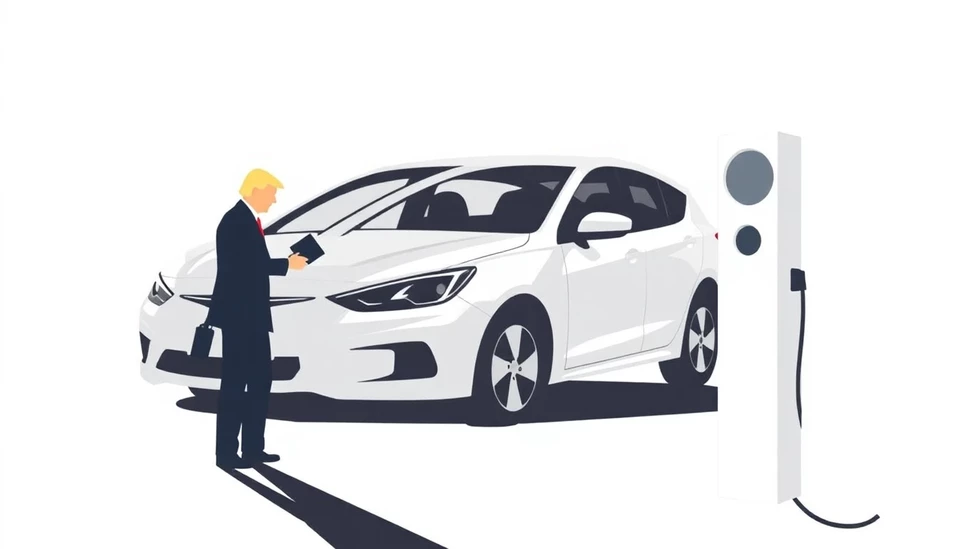
In a bold initiative, former President Donald Trump’s team is gearing up to reshape the American automotive industry by targeting significant cuts to subsidies for electric vehicles (EVs). This move is seen as part of a broader strategy to reshape the market dynamics and stimulate domestic manufacturing amidst ongoing debates about climate policies and energy independence.
The proposed cuts to EV subsidies aim to recalibrate the competitive landscape among automakers. By reducing financial incentives that currently support electric vehicle production and purchases, Trump’s plan could potentially shift the focus back toward traditional internal combustion engine vehicles. This shift is expected to resonate with his base, which includes a substantial number of voters from automotive manufacturing regions that historically rely on gas-powered vehicles.
Critics of the EV subsidy cuts argue that such a move would undermine efforts to combat climate change and slow down the transition towards cleaner energy solutions. The Biden administration has made significant investments in green technology and incentivized the shift to EVs to reduce carbon emissions, emphasizing the importance of sustainable practices in the automotive sector.
In response, Trump's advisors contend that governmental subsidies for electric vehicles favor certain automakers over others and that a market-driven approach could foster competition and innovation. The aim is to create an ecosystem where consumers can choose freely between conventional and electric vehicles without government influence skewing market conditions.
Supporters of the former president's vision assert that this plan will benefit the American workforce and revive traditional manufacturing jobs that have been overshadowed by the rapid rise of electric vehicles and the companies producing them. They argue that a strong automotive sector, grounded in established technologies, is crucial for the economic stability of manufacturing-heavy regions.
As the former president prepares to announce his broader automotive policy plans, speculation grows about how these proposed cuts could interact with existing state and federal proposals aimed at promoting electric vehicle adoption. The fallout from these policy shifts could have lasting implications for the automotive industry and environmental policies in the United States.
As the political landscape continues to evolve, the balance between fostering innovation and protecting traditional industries will be a key point of contention in the ongoing debate regarding the future of transportation in America.
The Trump team's proposed changes signal a transformative period for the automotive sector, raising questions about sustainability, economic priorities, and market regulation in a time of rapid technological advancement. As the administration looks to shape the future of American automobiles, stakeholders from various sectors will undoubtedly be watching closely.
#Trump #EVSubsidies #AutoIndustry #PolicyChange #ElectricVehicles #USPolitics #Manufacturing #CleanEnergy
Author: John Harris




